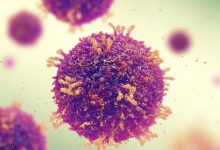
Is a Vitamin D Deficiency Causing Your Depression?
shahennews
Vitamin D is known as the “sunshine” vitamin. It is an essential fat-soluble nutrient. It helps keep bones healthy and strong, helps cell growth, and benefits immune function.
Your body absorbs vitamin D primarily through sun exposure, although dietary supplements and certain foods can also be sources of the nutrient.
Vitamin D deficiency occurs when your body doesn’t absorb the recommended levels. Insufficient vitamin D levels can cause your bones to become misshapen, brittle, or thin. It can also lead to a number of health problems, including:
- bone softening (osteomalacia)
- low bone density (osteopenia)
- osteoarthritis
- heart disease
- cancer
- rickets in children
Vitamin D and depression
Studies have shown a link between vitamin D deficiency and depression. Researchers behind a 2013 meta-analysis noticed that study participants with depression also had low vitamin D levels. The same analysis found that, statistically, people with low vitamin D were at a much greater risk of depression.
The researchers believe that because vitamin D is important to healthy brain function, insufficient nutrient levels may play a role in depression and other mental illnesses. An earlier 2005 studyTrusted Source identified vitamin D receptors in the same areas of the brain associated with depression.
Risk factors for vitamin D deficiency
Limited sun exposure, lifestyle, and age can contribute to low vitamin D levels. Keep reading to learn more about the risk factors for vitamin D deficiency.
Limited sun exposure
Sunlight exposure is the primary source of vitamin D for most people. If you stay out of the sun or use too much sunblock, you limit your exposure. That can lead to vitamin D deficiency.
The amount of sun exposure you need will depend on your climate, the time of day, and the time of year. People with lighter skin tend to absorb vitamin D more quickly. You may need anywhere from 15 minutes to 3 hours of sun exposure per day to get enough vitamin D from sun exposure alone. The amount of sun exposure depends largely on the time of year and your skin tone.
Diet
Few foods are naturally rich in vitamin D. Eat more of these great natural sources of vitamin D to increase your intake:
- salmon
- mackerel
- other fatty fish
- fish liver oils
- animal fats
- vitamin D fortified food products, like orange juice and cereal
If you adhere to a vegan or vegetarian diet, there’s a chance you’re not getting enough vitamin D.
Darker skin tone
People who have darker skin have greater amounts of melanin, a natural pigment that gives skin its color. Melanin reduces vitamin D production in the skin.
A 2006 study found that, in the United States, vitamin D deficiency is more prevalent among African-Americans than other American populations. According to The Cooper Institute, around 40 percent of African-American adults are vitamin D deficient. It’s unclear if lower vitamin D levels in people with darker skin have serious health implications.
If you are concerned about your vitamin D production from sun exposure, talk with your doctor about what you can do. It’s also important to add more foods rich in vitamin D to your diet.
Higher latitudes
Studies published in The Journal of Nutrition and the The Journal of the American Osteopathic Association both found that people living in northern latitudes, such as the northern half of the United States may be more likely to have lower vitamin D levels.
If the area where you live gets less sun, you may need to spend more time outside to increase your sun exposure.
Obesity
A link exists between vitamin D deficiency and people with a body mass index (BMI) of 30 or higher. People who are obese may need to absorb more vitamin D than people of average weight in order to reach recommended nutrient levels.
If your BMI is 30 or higher, work with your doctor to come up with a manageable weight loss plan, as well as a diet that can help increase your vitamin D intake.
Age
Age can contribute to vitamin D deficiency. As you get older, your skin becomes less efficient at synthesizing vitamin D. Older adults also tend to limit time in the sun and may eat diets with insufficient amounts of vitamin D.
Symptoms of vitamin D deficiency
If you have a vitamin D deficiency, you may experience:
- aching bones
- fatigue or drowsiness
- weakness and pain of the muscles and joints
You may also experience symptoms of depression that include:
- overwhelming feelings of sadness, hopelessness, and helplessness
- insomnia or excessive sleepiness, known as hypersomnia
- loss of interest in activities you once enjoyed
- lethargy
- excessive weight loss or weight gain
- loss of appetite
- problems concentrating
- forgetfulness
- loss of sexual interest
- headaches or back pains
- anxiety
- thoughts of death or suicide
If you are experiencing any of these symptoms of depression, it’s important that you make an appointment to see your doctor right away.
Diagnosis of vitamin D deficiency
To diagnose vitamin D deficiency, your doctor will order a test to measure the amount of vitamin D in your blood.
To diagnose depression, your doctor will ask you questions about your symptoms. You may also be asked to complete a self-assessment. Depression cannot be diagnosed using a blood test.
Your doctor will also ask you questions and perform a physical exam to determine if you have depression. And there may be other exams and lab tests to rule out any other potential underlying issues, as well as to determine whether your symptoms of depression may be linked to a vitamin D deficiency.
Treating vitamin D deficiency
You can treat vitamin D deficiency and its symptoms by increasing your intake of this vital nutrient. Ways you can consume more vitamin D include:
- taking vitamin D supplements
- increasing your sun exposure
- eating foods containing vitamin D or that are fortified with vitamin D
To treat depression, psychotherapy and antidepressant medications are common treatments. They can be incorporated separately or in combination with dietary changes, depending on your symptoms and treatment goals.
If your depression is related to a vitamin D deficiency, increasing your vitamin D may help to relieve your symptoms.
Speak with your doctor about your treatment options and what would work best for you.
People with depression can also take steps to alleviate symptoms of depression. Some of your options may include:
Joining a support group
Support groups can help you connect with other people online, by phone, or out in your community who are experiencing similar symptoms. They can offer compassion and encouragement.
Exercising regularly
Routine exercise can help reduce symptoms of depression by releasing “feel-good” chemicals like endorphins in the brain. Exercise can also reduce immune system chemicals that can worsen depression. Start out with 30 minutes of cardio three times a week and add on days and minutes as needed.
Keeping a regular sleep schedule
Insomnia, hypersomnia, and other sleep issues have been linked to depression. To cope with these symptoms, create a regular sleep schedule. That could mean setting a sleep and wake alarm. You might also keep a journal to log how long you slept and the quality of your sleep. This will help you track your progress.
Reaching out to loved ones
Your friends and family can give you support and strength as you cope with your symptoms. It’s important you let your loved ones know how to help and when their actions are not helpful to your treatment plan.
Takeaway
Vitamin D is vital to your physical and mental health. Insufficient vitamin D levels can lead to a number of health problems, including depression. Some ways to treat depression related to insufficient vitamin D levels include:
- getting more sun
- adding foods rich in vitamin D to your diet
- maintaining a healthy weight
- taking nutrient supplements
Speak with your doctor about your best treatment options.





